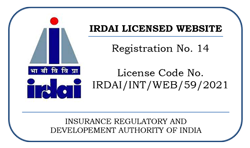Term insurance is a type of life insurance that provides coverage for a specific period, or term, usually ranging from 10 to 30 years. It is designed to offer financial protection to the insured's beneficiaries in the event of their untimely death during the term of the policy. One of the key advantages of term insurance is its affordability compared to other types of life insurance, such as whole life or universal life insurance. This is because term insurance focuses solely on providing a death benefit without any investment or cash value component.
Term insurance offers flexibility, as policyholders can choose the coverage amount and the length of the term based on their specific needs and circumstances. The death benefit paid out to beneficiaries can help them cover various expenses, such as mortgage payments, educational costs, or day-to-day living expenses. This can provide peace of mind, knowing that loved ones will be financially protected even in the insured's absence.
Since term insurance does not accumulate cash value over time, it is often regarded as pure protection. This makes it an ideal choice for individuals seeking temporary coverage during a specific phase of their lives, such as when they have dependents or outstanding debts. Additionally, term insurance can be useful for business owners who want to protect their business interests or cover key employees for a certain period.



